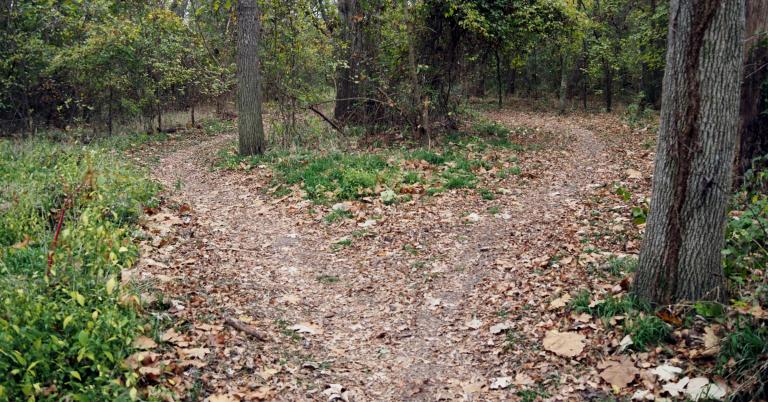Last week an article came across my social media feeds titled: Study links some forms of spiritual training to narcissism and “spiritual superiority”.
The article in Psych News Daily is based on a paper from Roos Vonk and Anouk Visser at Radboud University Nijmegen in The Netherlands. It’s not behind a paywall, so you can read the whole thing if you like.
Here’s an excerpt from the abstract:
Spiritual training is assumed to reduce self-enhancement, but may have the paradoxical effect of boosting superiority feelings … Our results illustrate that the self-enhancement motive is powerful and deeply ingrained so that it can hijack methods intended to transcend the ego and, instead, adopt them to its own service.
And a line from the conclusion that will surprise exactly no one:
The phenomenon of spiritual superiority is widely recognized, both by authors who have written about it and by lay people who have felt the condescension of spiritually ‘enlightened’ others.
If you’ve been around Paganism, witchcraft, or any form of alternative spirituality for any length of time, you’ve seen this first-hand. It can lead to spiritual bypassing, toxic positivity, and carried to extremes, to abusive and cultish behavior on the part of “spiritual” leaders.
The study shows that some forms of spiritual training are more likely to lead to narcissism than others. And while that finding makes sense, in my experience the type of training and practice is less relevant than the depth and seriousness with which it’s approached (to which a cynic might respond that some forms of spirituality are inherently deeper than others, but that would be judgmental…).
I’m glad that these mental health professionals have done the work to study this phenomenon. But as someone who participates in spiritual training – both as a teacher and as a student – I’m more interested in how we can avoid it.
It’s not wrong to want to be more spiritual
We need to start here. It’s not wrong to want to be more spiritual than the average person.
Some people have the idea that we should all just want to be the same. I say we should all be as much as we can be… and as much as we want to be. I love watching professional athletes do things I can never do. I love seeing artwork made by people with vision and skills I simply don’t have. I’m a pretty good ritual leader, but I enjoy participating in rituals led by people whose composition and facilitation skills are far above mine. They don’t intimidate me – they inspire me.
It’s not wrong to want to increase your spiritual or magical skills. Desire is a good thing. It’s the first step toward doing something that will make your life better, and possibly make the world better.
Desire can get out of hand, particularly if we respond without regard for the bigger picture, or without regard for ethics. But wanting to be more spiritual – however you define it – is a good thing.
The challenge comes with what it takes to get there. There are many ways to approach spirituality. There are only two ways to do it right.
Diligent and consistent practice
This is the route most of us have to take.
You start where you are, because you can’t start anywhere else. Pray. Meditate. Make offerings. Spend time outdoors. Read and study whatever magical or spiritual techniques that interest you and then start practicing them.
There’s a chapter on spiritual practice in The Path of Paganism and another chapter in Paganism in Depth. I’ve blogged on spiritual practice numerous times over the years. If you’re looking to get started, there’s plenty here to point you in the right direction.
But then you have to do the work.
Some things you do every day. Others every week, every month, or every season.
How quickly you progress depends on your level of commitment, your aptitude for the work, and on the quality of your instruction – regardless of whether you learn from books, online sources, in-person teaching, or any other method. If what you practice is ineffective or just plain wrong, you’re not going to grow.
Formal training helps. The OBOD course was very helpful to me as I was getting serious about my Pagan practice. I teach classes, both at Pagan gatherings and online. But no weekend class or 6-week class is going to make you a master of anything.
A God or other spirit claims you
This is the quick way. It’s not the easy way.
I wrote about this last year in a post titled Sometimes The Gods Take What They Want and Sometimes What They Want Is You. While most of us have a choice as to which deity we will worship – if any – some people don’t. Some people are claimed, a few of them violently.
I don’t know why. I just know it happens in a small percentage of cases.
These people have instant spiritual depth. There’s nothing like having a God pick you up and throw you across the room (I know one case where that happened literally) to make the world of spirit absolutely real to you.
They don’t get instant magical and spiritual skills. Most times they have to work to develop them the same as everyone else. They just never get a break from school.
Issues of cultural appropriation aside, this is why most people who call themselves shamans aren’t shamans. Taking a Michael Harner course doesn’t make you a shaman. If you journey into the Otherworld, you’re a hedgewitch. If you work with spirits, you’re a sorcerer. The definition of a shaman isn’t just “someone who does shaman stuff” but also someone who’s been claimed by the spirits. Without that claiming, you cannot be a shaman.
With that claiming, you’re set for a life that’s hard, painful, and likely, short.
Do not wish for this. But it is one way to gain authentic spiritual depth.
A humbling experience
It’s good to want more spiritual depth, knowledge, and skills than the average person. But when you start to get it, there’s a bit of Dunning–Kruger effect. People with a little knowledge overestimate their abilities.
The more you learn, the more you realize just how much you don’t know.
Experiencing the first-hand presence of a God is an amazing thing. But after it’s over, you realize that what you experienced wasn’t you, it was Them. You realize that while your skills and abilities may be above average, the Gods are more than you by orders of magnitude.
When I hear people bragging about their magical power, their spiritual depth, or telling everyone they’re “a natural witch” I assume they’re still on that initial Dunning-Kruger peak. The people who I know have some spiritual depth to them – the people I go to when I run into things I need help with – are all rather quiet and modest… and not just because they’re introverts.
They know that however “big” they may be, there are persons out there who are massively bigger.
A lot of work
I teach a class on Operative Magic – the kind of magic you use to get stuff done. There’s nothing wrong with using magic to make your life better. In a year like 2020, we need all the help we can get.
But when you start working with Gods and spirits, when you start exploring the edges of the map of reality, your life doesn’t get easier. It gets a lot busier. There’s a reason why people with oathed relationships to deities often say they were “called into Their service.”
The spiritual side of all this is a lot of work. The mundane side of it is even more work.
It’s meaningful and fulfilling work – I wouldn’t trade it for anything. But that doesn’t make it any easier, or any less time-consuming.
My first thought on reading this study was “yes, of course that’s true.” My second thought was that some people are going to hear this and think “maybe I shouldn’t pursue spiritual training.” But the people who are having second thoughts are the ones who are less likely to fall into this trap. It’s the ones who are thinking “I can handle it” (when they don’t even know what “it” is yet) that I’m concerned about.
Be mindful: know what you’re getting into. Be prepared to put in the work for as long as it takes. Understand that the work never ends.
Do it right and it can be incredibly rewarding.





















